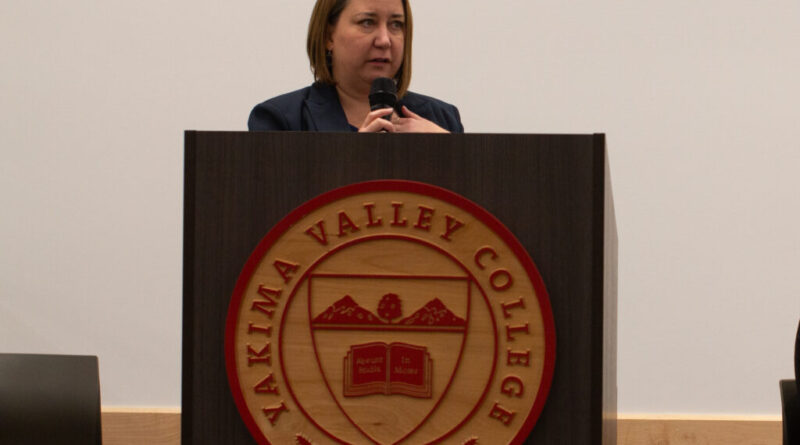Washington State is hiring for a variety of health care providers – Northwest Public Broadcasting
The Washington State Department of Health is working to open new career paths in the health care sector as part of their efforts to address the state’s mental health and substance abuse needs.
At a conference hosted by Yakima Valley College, students heard from mental health professionals about a variety of career opportunities in mental health and substance abuse.
Teresa Claycamp is the assistant director within the Department of Behavioral Health and Rehabilitation at HCA. He said the epidemic has put pressure on mental health workers while there is a great need, especially in rural areas.
“We have seen a significant increase in the number of people who have recently sought services,” he said. I think it made me more tired.
People living in rural areas may also have an increased need for mental health support.
Part of HCA’s efforts to address those needs depends on supporting existing providers, Claycamp said. One is to hire the next generation.
“I think it’s a ‘both and’ approach,” he said.
In 2021, Claycamp said, HCA launched a “Start Your Path” campaign to highlight career options in health care. Part of the campaign focuses on highlighting career options other than those that require advanced degrees.
“Our goal was to teach the people of Washington that there are many paths regardless of your educational background,” Claycamp said.
At the Yakima event, flyers scattered around the tables highlighted various activities. One is peer counseling, which allows people who have experienced mental health or substance abuse problems to work to support others who have similar experiences. Other career options include substance abuse prevention work.
The state has a critical need for behavioral health care providers, Claycamp said, especially in rural communities like the Yakima Valley.
“Without a workforce of behavioral health providers to support the community, we will continue to see people in an ongoing crisis of mental health, which can have an impact on the wider health system, ” he said.
Deniele Fleming is the department chair and instructor of the Substance Abuse Program at Yakima Valley College.
Fleming says that when he began his career in substance abuse treatment, field work was largely limited to residential care and outpatient services.
But as addiction treatment needs increase, so do the types of conditions. Today, they are study programs which allow you to have field experience while at college on weekends.
“We recognize that we need everyone to work together to deal with drug use in our communities,” Fleming said.
HCA is also working with the state Legislature to pass legislation in 2023 that creates new degree opportunities for bachelor’s degree holders called a behavioral health support specialist. In addition, the agency has served as the state’s Medicaid agency to make changes to Medicaid benefits that allow more services to be provided by more employees.
Providing a range of services, some of which focus on drug use early in the school and community, makes it possible to help people before they get into trouble, Claycamp said.
Community behavioral health providers also need a steady source of funding, Claycamp said.
“It’s better to step up and support people early than to wait for them to be in trouble before they can get help, or be accepted, or be seen,” he said. “We have to do better.”
Other gaps in access to health care are related to underrepresented patients’ ability to connect with their provider through things like a shared language or identity, he said.
“Research shows that patients and clients experience better health outcomes when they meet with a provider who has a similar cultural or ethnic background,” he said. “People of color represent less than 20% of the mental health workforce. That’s not fair.”
Among the students at Yakima Valley College, who hosted the event, 65% identify as Hispanic, according to the college. websiteand 53% of county residents identify as Hispanic or Latino, according to the Census Bureau.
Claycamp says the campaign aims to increase representation and inclusion among the bilingual and LGBTQ+ mental health workforce, as well as increase excitement and knowledge of careers in mental health fields. good morals.
“What we’re trying to do with this campaign is connect with real professionals doing the work, connect with the ‘why,'” he said.
#Washington #State #hiring #variety #health #care #providers #Northwest #Public #Broadcasting
